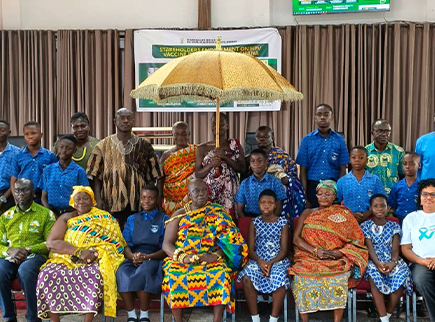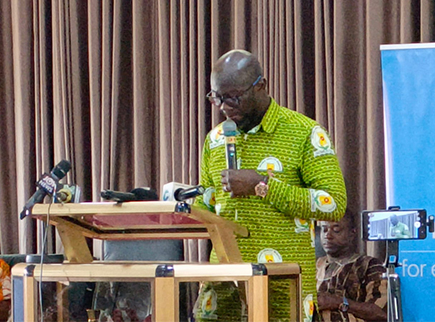The Ashanti Regional Health Directorate has called on religious leaders, traditional authorities and other key stakeholders to support the upcoming Human Papillomavirus (HPV) vaccination campaign, which begins nationwide on October 7.
Dr. Fred Adomako-Boateng, Ashanti Regional Director of Health Services, said the involvement of these groups was indispensable to ensuring a successful rollout, describing them as powerful agents of influence and trust within their communities.
“Cervical cancer remains one of the leading causes of cancer deaths among women in Ghana, robbing families of mothers, sisters, daughters, and colleagues every year,” he said.
The Regional Director further stated that, “The introduction of the HPV vaccine offers a unique opportunity to protect our girls early, before they are exposed to the virus that causes cervical cancer.”
The nationwide exercise will target girls aged nine to 14 years as part of Ghana’s routine vaccination schedule.
It aims to protect them from cervical cancer, which affects more than 3,000 women in Ghana annually, with over 2,000 dying from the disease.

The stakeholder engagement in Kumasi brought together representatives of the clergy, Muslim leaders, traditional rulers, the Information Services Department, the National Commission for Civic Education, and the Ghana Education Service.
The event was supported by the United Nations Children’s Fund (UNICEF).
Dr. Adomako-Boateng explained that the Ghana Health Service (GHS) had scheduled the vaccination campaign to give young girls a healthy start into adulthood and reduce the future burden of cervical cancer.
He urged participants to act as bridges between the health system and the public by dispelling myths, sharing accurate information, and facilitating vaccination in homes, schools, and communities.
“The vaccination campaign should not be seen as just a health exercise but a national duty to protect the next generation of Ghanaian women,” he said.
He added that Ghana had already conducted pilot projects to prepare for the national rollout and expressed optimism that, with strong collaboration, the country would make history by successfully introducing the HPV vaccine nationwide.
Madam Charity Nikoi, Social and Behaviour Change Specialist at UNICEF Ghana, also stressed the importance of partnership and community support for the success of the initiative.
She noted that early diagnosis and prevention were critical since late detection of cervical cancer often resulted in high mortality.
“UNICEF is particular about the protection of children and future generations. We call on community leaders to promote and actively participate in this campaign,” she appealed.

